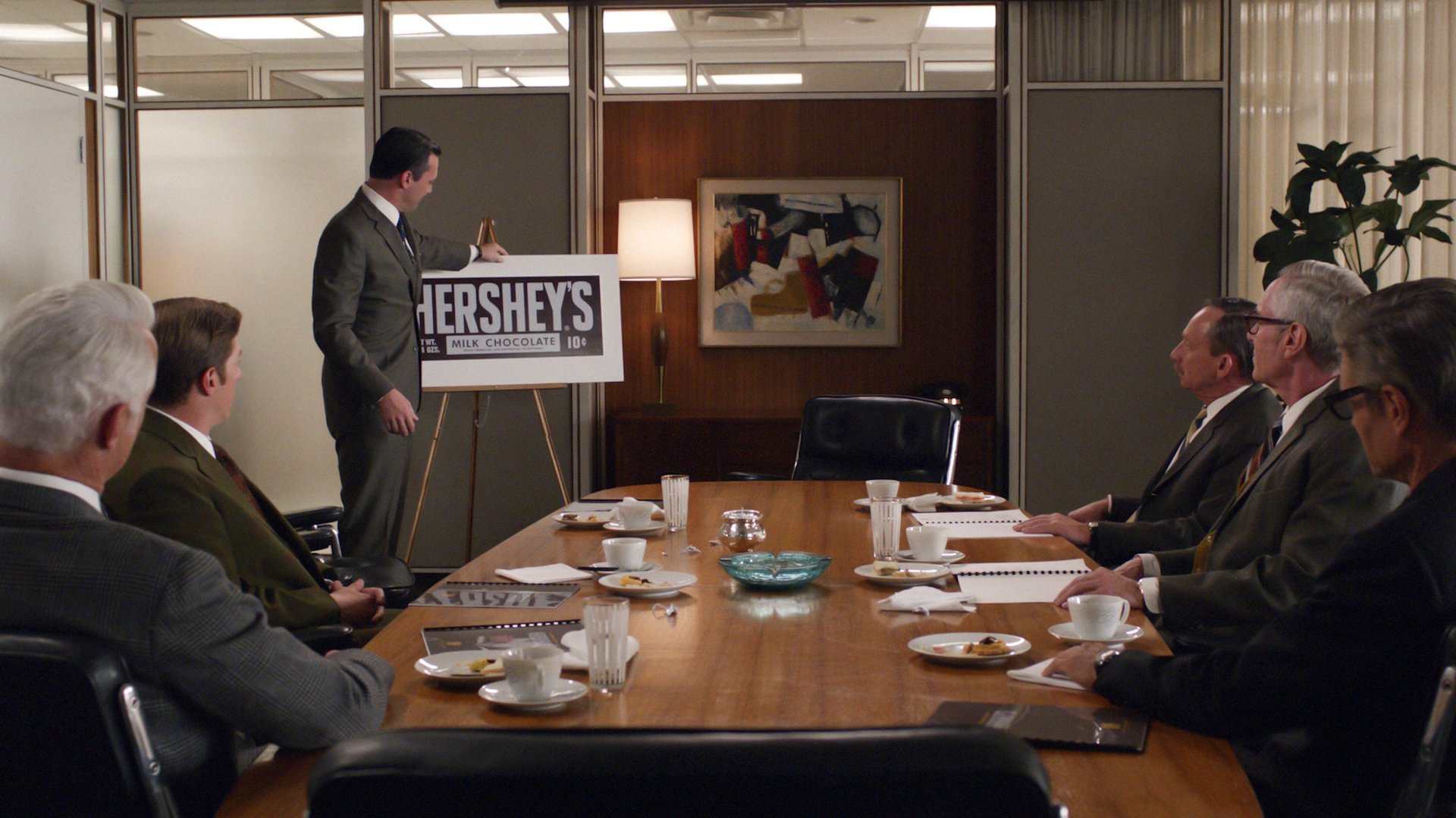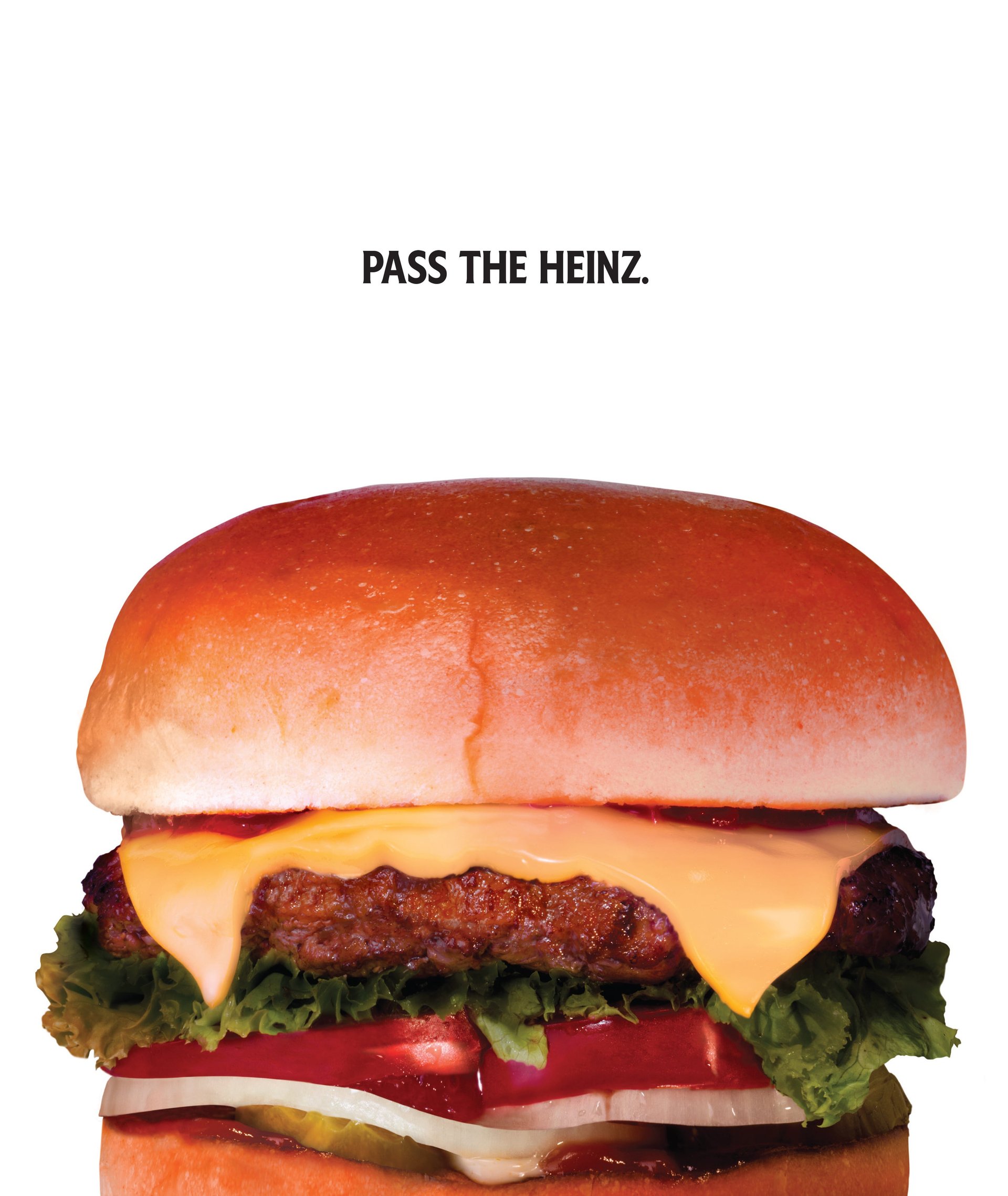Heinz is running Don Draper’s ketchup ads, but there were much better ad concepts in “Mad Men”
Don Draper is so good at advertising that his ideas have now transcended his fictional reality and entered the real world. Heinz will run a series of ketchup advertisements originally pitched by the ad man in the AMC series Mad Men, Adweek reported yesterday.


Don Draper is so good at advertising that his ideas have now transcended his fictional reality and entered the real world. Heinz will run a series of ketchup advertisements originally pitched by the ad man in the AMC series Mad Men, Adweek reported yesterday.
Draper’s 1960s-era pitch to Heinz controversially omitted the company’s iconic bottle from the billboards. Instead, they featured only photos of food with the words “Pass the Heinz” above them, leaving the ketchup itself for the imagination.
In in the show, Heinz passed on Draper’s idea, but the packaged food company apparently has come around to it 50 years later. According to Adweek, the ads will run as billboards in New York City, in the New York Post, and in Variety magazine, as well as across Heinz’s social media channels. Sterling Cooper Draper Pryce, Draper’s fictional ad agency, will receive a credit on the campaign.

While some of the ads in Mad Men were inspired by real ads from the 1960s, this marks the first time that a company will use ads from the TV series in a real campaign (even if it’s mostly a PR stunt).
The move speaks to the growing influence of the so-called “golden age of television” on other sectors of business, as well as the specific cachet of the Emmy-winning AMC series.
Draper’s Heinz pitch, though, was not even among the most memorable or effective ads devised in Mad Men. Arguably, it wasn’t even the show’s best Heinz pitch.
To that end, we picked a few of the ad pitches from the series that we think would actually make for great real-life advertisements. Though some of these companies and products are defunct, we can just use our imagination, like Draper wanted us to.
“Hershey: The currency of affection”
In the show’s sixth season finale, Draper pitches a passionate, moving idea to Hershey executives. He tells the story of how after he mowed the lawn as a child, his father would take him to the drug store and tell him he could get anything he wanted. He picked a Hershey chocolate bar.
“Forever, his love and the chocolate were tied together,” Draper says. “Hershey’s is the currency of affection. It’s the childhood symbol of love.”
The Hershey executives seem impressed, except there’s one problem: It’s all a lie. Draper can’t help himself from self-sabotaging the pitch: He proceeds to tell the real story of his childhood, as an orphan growing up in a brothel. His true memory of Hershey’s chocolate was very different. One of the women made him pickpocket the brothel’s clientele, and if he found more than $1, she’d buy him a Hershey bar. The young Draper would eat the candy in his room, alone, “with great ceremony”—the only thing that made him feel like a normal kid.
It’s a poignant moment, but Draper’s real childhood story probably wouldn’t make for the best real-life ad—and it certainly scared off the executives hearing his pitch. In real life, however, Hershey execs were impressed and flattered, and even sent the show’s creator, Matthew Weiner, a stash of chocolate to thank him.
“It was such a wonderful, organic moment that was actually very accurate about the company’s history, and it was able to tell the story of our brand and our founder, which made it so memorable,” a senior brand manager told Vanity Fair in 2013. She said that Hershey planned to use the pitch to “educate our internal workforce to show that [the] power of this iconic brand.”
The Kodak Carousel
The most renowned of Draper’s pitches came at the end of the first season. Using his own family photos, he pitches the imaging company an ad for its slide projector steeped in nostalgia. “It takes us to a place where we ache to go again,” he says. “It lets us travel the way a child travels, around and around, and back home again, to a place where we know we are loved.”
The Kodak representatives promptly cancel all their other meetings with competing ad agencies, and Draper wins the account. It was probably the best pitch in the show’s history, and if the “carousel” projector were still around today, perhaps Kodak would take a page out of Draper’s book in promoting it.
“Family supper at Burger Chef”
Peggy Olson, the secretary-turned-copywriter and Draper’s protégé had her “carousel” moment in the show’s seventh season when she pitched her campaign for Burger Chef, the now-defunct American fast food chain popular in the 1960s and 1970s.
She somehow managed to turn the act of sitting around a table eating fast food into the heartwarming story of a family seeking connection. Some of the real Burger Chef ads from that time were decidedly weirder.
Honorable mention: The Glo-Coat commercial
Don and Peggy’s Glo-Coat commercial wasn’t that notable, but it did give us one of the best scenes in a show filled with many great scenes.
Don wins a Clio award for his work on the floor wax ad. Peggy, however, gets no credit, despite coming up with the original idea. That leads to the following confrontation, which produces perhaps the greatest line of dialogue in prestige TV history:
The conversation touches on all the topics the show explored so well: management, workplace sexism, ambition, creativity, egotism, and, of course, advertising.
“It’s your job,” Draper says. “I give you money, you give me ideas.”
“You never say ‘thank you’!” Olson shoots back.
“That’s what the money is for!”